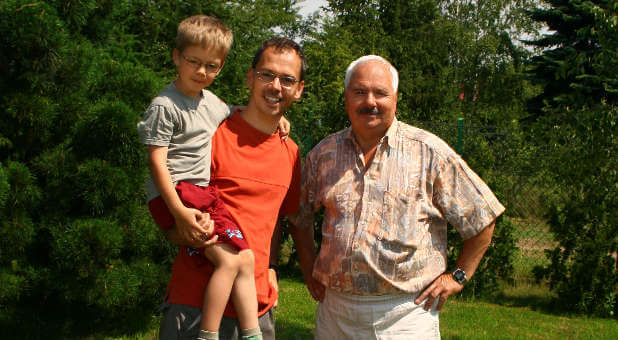Our commitment to care for our children can significantly influence the way in which they will care for us in our later years. Dave Sobel’s book Galileo’s Daughter gives a compelling description of the reciprocal nature of the father-daughter relationship. This historical memoir describes how the father of modern physics was cared for and supported throughout his life by his daughter, Maria Celeste.
As a father, Galileo had faithfully provided for his daughter’s care and later supported her work at the convent where she lived. From the convent, Maria wrote over 100 letters to her father, and signed each one, “Your most affectionate daughter, Maria Celeste.”
Those letters became a source of strength to him during the hardships he faced in his career. When Galileo was asked to recant his theory that the sun was the center of the solar system, Maria wrote bold letters in support of her father. She also played a significant role in providing him with medical help. As a pharmacist, she “concocted elixirs and pills to strengthen him for his studies and protect him from epidemic diseases.”
To Think About …
With the growing concern about how to care for aging parents, today’s adults are learning first-hand about the reciprocal nature of parent-child relationships. Life expectancy is rising and quality of life for seniors is improving, but those factors can increase the complexity of family commitments when it comes to elder care.
When Melvin was admitted to the hospital for surgery this week, his daughter Linda was the first of his children to arrive. She sat patiently with her mother for the next four hours as her brothers arrived. For over a decade, Linda has been faithful in supporting her father in their small family business. Now, as Melvin faces a three- or four-month recovery, the burden of caring for her parents will increase and they will depend on her to keep the business in line. Much of their retirement income is dependent on Linda’s work.
Linda wants to be there as much as she can during her father’s recovery, but that’s only part of her responsibilities. Her family extends two generations in both directions: she’s also helping to care for her grandmother, and she has two grandchildren of her own. Linda has come to recognize that, though there are many things she would like to do for her family members, she has limited time and energy to spread around.
Action Points for Committed Fathers
- Talk to your children about their grandparents or other aging relatives. Describe how you plan to assist them, and ask your kids what they could do to help.
- Take time to discuss with your wife specific ways in which your relationship with each of your children has changed over the past year. Then try to predict how your relationships with them will change over the next five years, 10 years, etc.
- Do some long- and short-term financial planning. Calculate the cost of your own retirement and make plans for how you’ll lend support to your parents in their retirement.
- Don’t underestimate the power of postal mail. Write a note to one of your children who may be at camp or out of the home, or to a parent who lives out of town.
Dr. Ken R. Canfield is founder of the National Center for Fathering, and served as NCF’s president and CEO from 1990 through 2005. He is the author of The Heart of a Father and numerous other books including the award-winning 7 Secrets of Effective Fathers.
All Pro Dad is Family First’s innovative and unique program for every father. Their aim is to interlock the hearts of the fathers with their children and, as a by-product, the hearts of the children with their dads. At AllProDad.com, dads in any stage of fatherhood can find helpful resources to aid in their parenting. Resources include: daily emails, blogs, Top 10 Lists, articles, printable tools, videos and eBooks. From AllProDad.com fathers can join the highly engaged All Pro Dad social media communities on Facebook, Twitter, YouTube and Instagram.
Click here for the original article at allprodad.com.











































